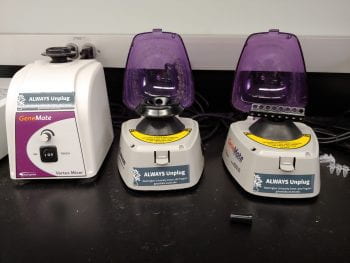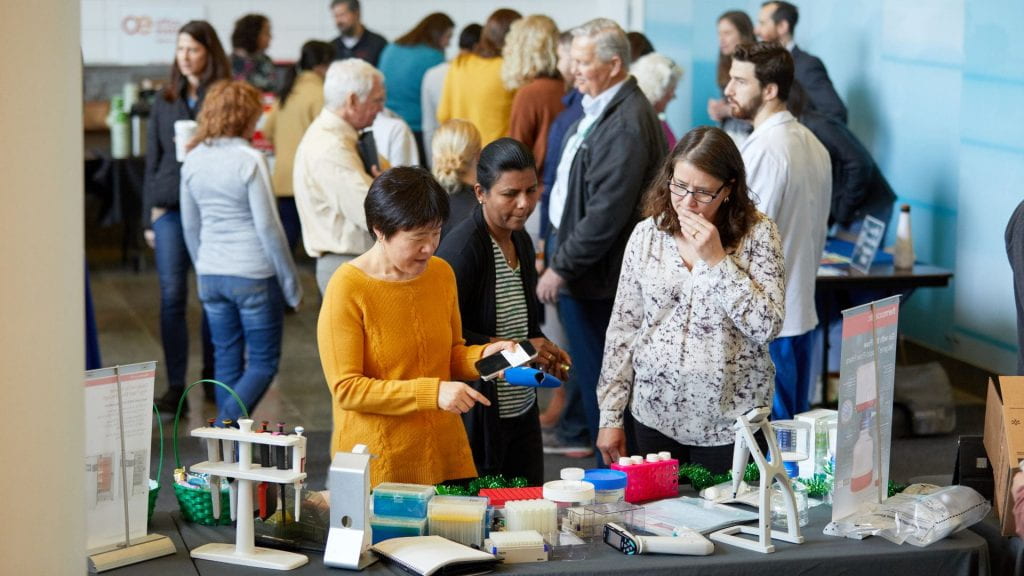With over 200 people in attendance, the Green Labs Program was officially kicked-off with a party earlier this month. Most of our lab supply vendors, local lab sustainability groups, and departments presented their options for greening our lab spaces. Some vendors displayed high-efficiency lab equipment, others had samples of products made with recycled content, and a few showed innovative new packaging designs that will help reduce the world’s use of Styrofoam coolers, and more.
Announced in January 2020, the Green Labs Program has quickly become part of the sustainability culture here at Washington University. The voluntary programs gives researchers the tools needed to make sustainable choices in their labs and reduce our collective environmental impact. Labs can use up to 5 times the amount of energy as office spaces, making this program high-priority, especially in regards to energy consumption. To combat one of the biggest energy hogs in the lab, the university adopted a high-efficiency -80 freezer standard in March 2019, requiring that new freezer purchases be high-efficiency models. Over the last year, over 80% of freezers purchased have been high-efficiency, which use up to 50% less energy than standard models.
 Over 40 labs have joined the Green Labs program and committed to make their lab spaces ‘green.’ Once a lab joins, they can request a batch of free signage for their labs – everything from large recycling posters to small “Always Unplug” stickers to put on benchtop equipment. The best part is – many labs had already implemented sustainable changes into their daily operations even before the program launched, showing how dedicated and passionate our community members are. The program resources and meetings with the program coordinator give more support to those individuals that want to do everything they can.
Over 40 labs have joined the Green Labs program and committed to make their lab spaces ‘green.’ Once a lab joins, they can request a batch of free signage for their labs – everything from large recycling posters to small “Always Unplug” stickers to put on benchtop equipment. The best part is – many labs had already implemented sustainable changes into their daily operations even before the program launched, showing how dedicated and passionate our community members are. The program resources and meetings with the program coordinator give more support to those individuals that want to do everything they can.
Some of the innovative ways researchers have reduced their environmental impacts include:
- Purchasing high-efficiency lab equipment, particularly ultra-low temperature freezers
- Collecting and dropping off Styrofoam and plastic bags at off-site recycling centers
- Designing experimental processes to reduce the number of pipette tips and other supplies needed
If you haven’t joined the program yet, make the commitment now and stay up-to-date on new program elements and success in the future. A certification process will be announced later this year to recognize labs for their continued successes to reduce the environmental impacts of their research.
